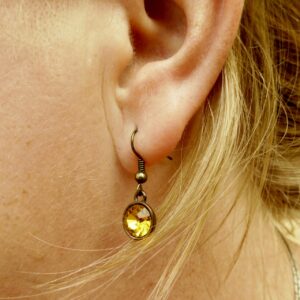A lesser-known complication that’s more common than you think
You’ve probably heard that diabetes can affect your heart, kidneys, eyes, and nerves—but what about your ears? New research shows that hearing loss may be another complication of diabetes, and it’s more common than most people realize.
In fact, adults with diabetes are about twice as likely to experience hearing loss as those without the condition, according to data from the National Institutes of Health. Even people with prediabetes may have measurable differences in hearing compared to those with normal blood sugar.
It’s a connection worth knowing—because unlike some complications, hearing loss often creeps in quietly.
A Surprising Connection
At first glance, your ears might seem unrelated to blood sugar. But experts say the link is real. Over time, high glucose levels can damage blood vessels and nerves throughout the body—and the delicate structures in your inner ear are no exception.
The inner ear relies on a steady flow of oxygen-rich blood and healthy nerve function to detect and transmit sound. When diabetes interferes with those systems, your hearing may slowly begin to decline—sometimes before you even notice.
One large CDC-supported study found that people with diabetes were more likely to experience mild to moderate high-frequency hearing loss, which often affects the ability to hear consonants, follow conversations in noisy places, or catch high-pitched voices.
What’s the Science Behind It?
There’s still more to learn, but researchers have proposed a few mechanisms for how diabetes contributes to hearing loss:
- Nerve damage (neuropathy): Just as diabetes can damage the nerves in your feet or eyes, it may also impair the auditory nerve that helps process sound.
- Circulatory issues: High blood sugar can damage tiny blood vessels that supply the cochlea, a crucial part of the inner ear.
- Inflammation and oxidative stress: Chronic inflammation linked to diabetes may also play a role in degrading ear structures.
The damage tends to develop gradually, and because hearing loss is painless, it’s often dismissed as “just getting older.” But diabetes might be speeding that process up.
The Subtle Signs You Might Miss
Many people don’t notice hearing loss right away—it builds slowly. But if you’re managing diabetes, it’s worth tuning in to these early red flags:
- Turning up the TV louder than usual
- Trouble hearing in restaurants or crowded rooms
- Frequently asking people to repeat themselves
- Thinking others are “mumbling”
- Ringing or buzzing in the ears (tinnitus)
Some people begin to withdraw from social situations or feel more fatigued after conversations—signs that their brain is working harder to decode unclear sound.
What You Can Do to Protect Your Ears
The good news? Hearing loss linked to diabetes isn’t inevitable, and there are steps you can take to protect your hearing.
Start with these:
- Get your hearing tested—especially if you’re over 50 or notice changes. Most tests are quick, painless, and covered by insurance.
- Keep your blood sugar in check. Stable glucose levels help protect blood vessels and nerves.
- Avoid unnecessary noise exposure. Use ear protection in loud environments.
- Talk to your doctor about hearing concerns at your annual visit. You may be referred to an audiologist or ENT specialist for follow-up.
Just like eye exams or foot checks, hearing health deserves a spot on your diabetes care checklist.
A Complication You Can Hear Coming
It’s easy to overlook hearing—until you start to miss out on conversations, music, or moments that matter. If you’re living with diabetes, staying alert to hearing changes can help you act early and stay connected to the world around you.
Managing diabetes isn’t just about numbers. It’s about protecting your whole self—including the ability to listen, laugh, and stay in tune with life.
Top Weight Loss Programs

Remedy Meds

Medvi

Hims

ShedRX









